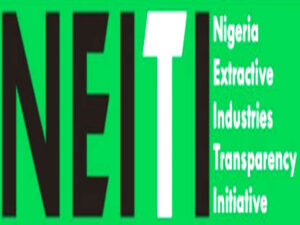The question of whether the Dangote Refinery represents a long-awaited economic solution or a potential monopolistic force has become one of the most debated topics in our nation’s petroleum industry.
With over $20 billion in investment and a production capacity of 650,000 barrels per day, the refinery is undeniably reshaping the country’s oil landscape. But while its impact is significant, opinions on its implications remain divided.
For years, our nation has grappled with a glaring contradiction: despite being Africa’s largest oil producer, it imports almost all its refined petroleum products. The nation’s four refineries, owned and managed by the government, have remained largely non-operational for nearly three decades, resulting in heavy dependence on imports and vast foreign exchange expenditure.
The Dangote Refinery seeks to change this reality, currently producing 57 million litres of petrol daily, reportedly enough to meet Nigeria’s local demand.
The economic potential of the refinery is enormous. Research from Analysts Data Services and Resources Limited projects that the facility could boost Nigeria’s GDP growth from 4.15% to 6.21% by 2030, adding over $400 billion to the economy.
The employment potential is equally substantial. Presently, the refinery employs around 29,000 Nigerians and 11,000 expatriates, a 3:1 ratio in favour of local talent, with estimates suggesting between 70,000 to 250,000 direct and indirect jobs in the near future.
Critics who raise concerns about monopoly may be overlooking the longstanding dominance of the Nigerian National Petroleum Company (NNPC) in the importation and distribution of petroleum products.
The entry of the Dangote Refinery has disrupted this established order, introducing a level of domestic competition that had been absent for years. OPEC has acknowledged the refinery’s influence, noting its effect on European gasoline markets, as suppliers seek alternative outlets in the face of shrinking demand from Nigeria.
The quality of Dangote’s output is another commendable feature. Tests observed by members of the House of Representatives showed its diesel contains only 87.6 parts per million (ppm) of sulphur, compared to over 1,800–2,000 ppm in products from two local filling stations. The refinery also produces Euro V standard fuel, with sulphur content as low as 32 ppm, well within international quality benchmarks.
Yet, concerns about market dominance cannot be ignored. One of the examples critics cited is the lawsuit filed by Dangote Refinery, allegedly seeking to revoke import licences granted to NNPC and six other marketers, citing breaches of Sections 317(8) and (9) of the Petroleum Industry Act (PIA). The Sections aim to incentivise local refining by prioritising it in the import licensing process.
The refinery is also reportedly seeking N100 billion in damages from the Nigerian Midstream and Downstream Petroleum Regulatory Authority (NMDPRA). Critics contend that this legal route may be seen as an attempt to limit competition judicially rather than through market performance.
Also, some marketers argue that dominance by a single player could threaten Nigeria’s energy security. They argue that any disruption at the Dangote facility may leave the market vulnerable
In this context, the role of regulators becomes paramount. The NMDPRA has stated its intention to prevent any form of unhealthy market domination, including by Dangote. It argues that import licences remain necessary because a single refinery cannot yet meet the nation’s full and consistent petroleum demand.
However, this argument is contested, as available reports suggest Nigeria’s daily Premium Motor Spirit (PMS) petrol consumption is around 50 million litres, while Dangote’s reported output stands at 57 million litres.
Internationally, the refinery’s reach is also drawing attention. OPEC has highlighted its influence in reshaping Atlantic Basin gasoline balances and squeezing European margins. While this enhances Nigeria’s strategic relevance in the global energy supply chain, it also raises concerns over potential overreliance on a single facility.
In essence, the Dangote Refinery symbolises enormous opportunities for the nation. It offers solutions to many of the longstanding energy challenges, promises job creation, reduces foreign exchange outflows, and raises product quality. However, concerns about market control and the potential marginalisation of other players are serious and require careful consideration.
What we need is not the elimination of Dangote’s influence but the establishment of fair and effective regulatory oversight. Policymakers must encourage additional refining capacity while protecting smaller players, safeguarding the interests of consumers and maintaining energy security.
The refinery is no doubt a dominant force in Nigeria’s oil sector. As Nigeria advances toward energy self-sufficiency, policymakers must harness the refinery’s benefits and ensure that competition, oversight, and consumer protection are not compromised.





